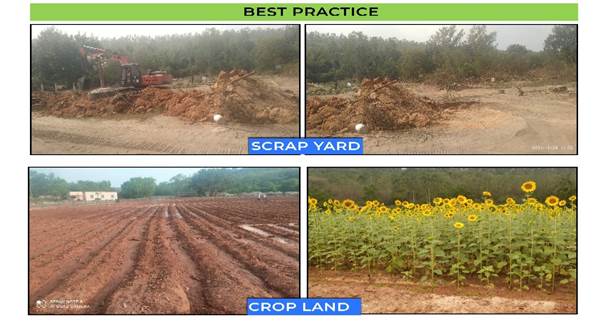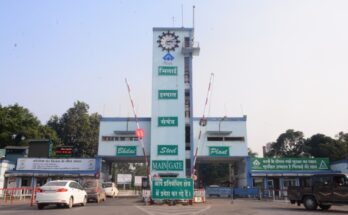
Team News Riveting
New Delhi, October 27
As part of Special Campaign 2.0 in the Ministry of Coal and its subsidiaries, a few of the Best Practices followed in this Campaign by MOC and its subsidiaries are listed:
In line with Swachhta Best practice, scrap yard in Kothagudem Area, SCCL, Hyderabad was converted into Crop Land.
A Call centre has been implemented for all the colonies of MCL, Odisha. AMC works of all 37 colonies of MCL, Odisha have been linked with the Call centre and redressal of complaints is done through the Call centre.
CCL, Ranchi is organizing awareness programmes on health, hygiene & cleanliness in nearby schools/villages etc. and distributed dustbins to nearby areas/schools for better collection of garbage.
WCL, Nagpur organised periodic cleanliness/awareness drives in colonies, villages, public places near areas of operations conducted in the form of Swachhata Rallies, Nukkad- Natak, competitions for school children etc.
In Special Campaign 2.0, 0.5 MLD capacity Sewerage Treatment Plant (STP) at SECL Bhatgaon was inaugurated by Shri Parasnath Rajwade, MLA of BhatgaonVidhan Sabha.
Domestic waste from the colonies collected daily in tri-cycle/truck and dumped in Municipality identified places where segregation is done. Bio Medical Waste disposed of to authorised recyclers under the Bio Medical Waste Management Rules.
Hazardous & E-waste scrap materials are kept in separate closed premises to prevent any environmental damage. Disposal of these items are carried out as per the Govt. guidelines for environmental protection. Hazardous waste like iron scarp, used oil, batteries and empty oil barrels are disposed to the State Pollution Control Board Authorised recyclers following the E-Waste Management Rules 2016.
Biomedical Waste generated at source (Hospitals and Dispensaries) is segregated and categorized in colour coded Bags like Yellow, Red, White, Blue and Black as per prescribed norms and safely disposed off through authorized Waste Management arrangements.
An awareness camp on mental health & personal hygiene was organised for rural women at Basantpur village in Dhankauda block of Sambalpur dist., Odisha with Mukti Mission founder Ms Rashmi Saha joining as chief speaker.
Cleanliness Awareness through Swatchhta Raths: NCL, MP deploys Swatchhta Raths to create awareness among people about cleanliness, hygiene and sanitation.
Wall Painting, a mode of art is a powerful tool of communication that is used in NCL to deliver the message of cleanliness. NCL fully understands the magnitude of impact that it creates in motivating people to adopt practices towards maintaining clean and hygienic surroundings.
Display banners are one of the powerful tools to communicate the message to the masses at a time. NCL has also adopted some innovative ideas in displaying the messages through different means such as placing banners at conspicuous locations, displaying message through LED screens in Swatchhta Rath etc.
Cleanliness Awareness through Nukkad Nataks
Nukkad Natak is an art form in which drama is performed to create social awareness among the masses. Nukkad Nataks have always been an integral part of social awareness tool in the Indian society. NCL organises nukkad nataks in different areas/ units.
NCL organizes seminars and counselling sessions to demonstrate the importance of maintaining personal hygiene illustrating the importance of comprehensive cleaning to maintain hygienic workplace and residential accommodation.



